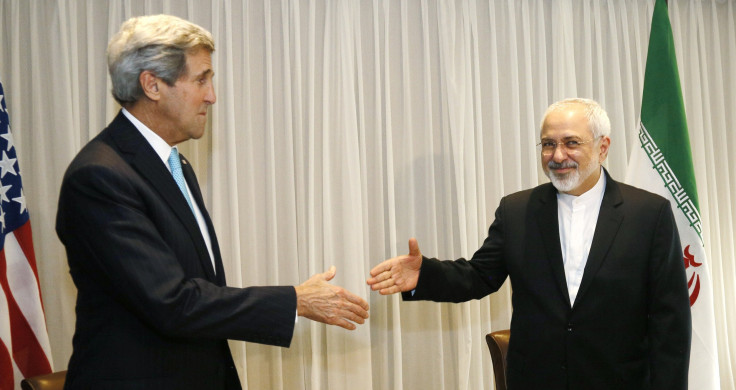After Letter To Tehran From U.S. Republicans, The Middle East (Except For Israel) Stays Silent

ISTANBUL -- The White House and Congress are digging deeper into a political battle over the possible nuclear deal with Iran, after 47 Republican senators sent a letter to Tehran warning the Islamic republic's government that any deal would be at risk of being nullified once president Barack Obama leaves office. But while the letter created a brouhaha in Washington and elicited an irked response from Iranian Foreign Minister Mohamed Javad Zarif, who called it without precedent in diplomatic relations, it failed to provoke public reactions from the governments of the Middle East.
From the capitals of the Mideast, where a nuclear Iran would cause the most worry, no voice came in support of the letter -- or for that matter, against it. That, analysts said, is because of one thing: Israel’s belligerent stance on the Iranian nuclear issue, which is forcing other Middle Eastern countries to stay silent on the issue, lest they be seen as agreeing with the Israeli enemy.
“They don’t want to be seen in association with Israel, because Netanyahu went to Congress and made this statement. And that was the instigator for the letter for the GOP to Iran,” said Sinan Ülgen, an expert on foreign policy at Carnegie Europe, a research institute in Brussels. "Throughout the Middle East, governments see Israel is in the vanguard of the opposition of the deal."
Israeli Prime Minister Benjamin Netanyahu spoke before a joint session of the U.S. Congress last week, denouncing forcefully any deal with Iran in the form currently being discussed in negotiations between Iran and the West.
Negotiations in Geneva are inching toward a possible deal in which Iran would freeze its nuclear energy program in exchange for a lifting of sanctions. Netanyahu would have none of that. “Iran's founding document pledges death, tyranny and the pursuit of jihad,” he said, arguing that Iran is too dangerous for a deal he deemed too soft. “As states are collapsing across the Middle East, Iran is charging into the void to do just that.”
Across Arab capitals, a deal is similarly unwelcome, although for different reasons.
“There is suspicion, especially in the Gulf, that the outcome of the deal would enhance Iran’s regional status and improve its relations with the U.S., which would hinder its relationship [with] countries like Saudi Arabia,” Ülgen said. “Following a deal, Iran would acquire a greater regional status. And Saudi sees Iran as its main rival.” But stating so publicly, or expressing support for the Republican letter, would be tantamount to siding with Netanyahu.
Shiite Iran and Sunni Saudi Arabia have for years intervened in volatile situations throughout the Middle East on opposite sides.
Iran currently is giving cash and weapons to Shiite groups in Yemen, Lebanon, Iraq and Syria. In the latter, Iran entered the fray to prop up president Bashar Assad, but its intervention has turned into a fight to stop Sunni militias from expanding. In Syria, Saudi Arabia is propping up Sunni rebels in Aleppo, and in Iraq it's supporting Sunni tribes in Anbar province.
"There is a longstanding problem of regional rivalry between Iran and Saudi," said Marco Giuli, an expert on energy at the European Policy Center, a think tank based in Brussels. "Of course Saudi is worried of any deal that would break Iranian isolation."
Recent reports have indicated that U.S. officials are considering putting forward a plan that would restrict Tehran’s nuclear capabilities for 10 years in exchange for the easing of some economic sanctions. Analysts and lawyers specializing in sanctions said one of the first parts of the sanction structure to be lifted or eased would be the so-called extraterritorial factor, which allows the U.S. government to punish third-party entities that deal with Iran. That would open Iran up to doing legitimate business internationally, which worries some Middle Eastern governments. For countries such as Saudi Arabia, Turkey and Jordan, an Iran released from its current economic restrictions and able to trade freely is a threat, in sectors from mining to the automotive industry.
Despite these concerns, no Middle Eastern country has made as loud a public statement against an Iranian nuclear deal as Israel.
"They all want to keep up their relations with the U.S.," said Hassan Selim Özerten, an Iranian energy expert at the International Strategic Research Organization, a nonprofit policy center based in Istanbul. “Had Israel not taken a hawkish position, you might have heard some more open criticism by regional leaders.”
© Copyright IBTimes 2024. All rights reserved.





















